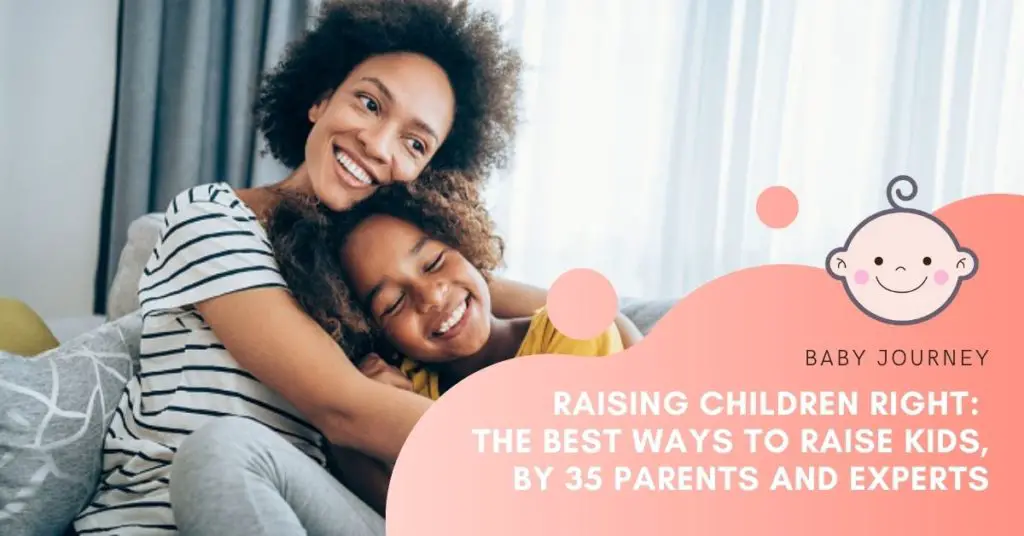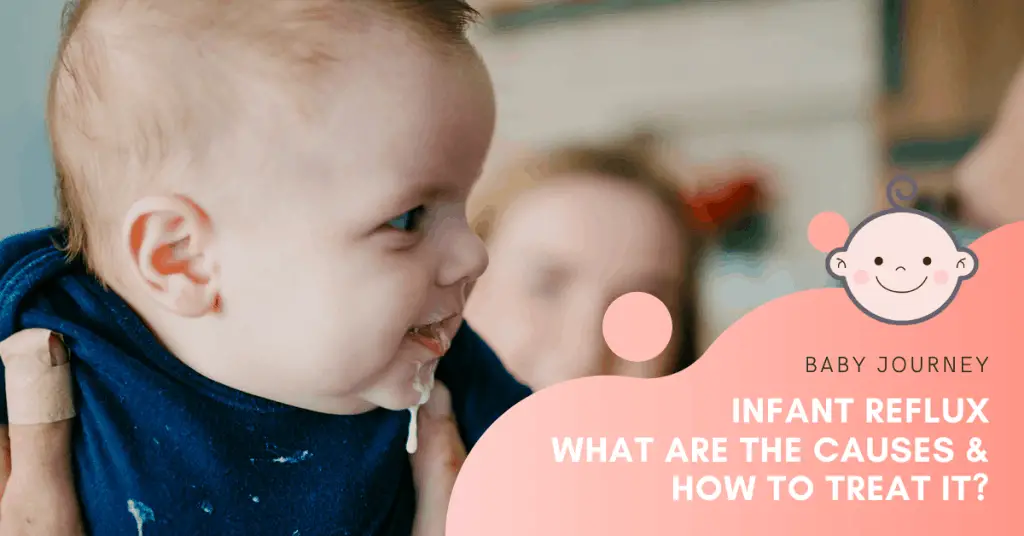Raising a family is tough work. Being a parent is hard, and we can all agree how to raise a good child is definitely not a walk in the park. And like every parent, we all want to be the best parents in the world for our children as much as possible, from giving them the best education to helping them succeed in their business ventures (By the way, if you are unaware of how to start an llc, then consider checking out StartMyLLC website).
Growing up, even till adulthood, I often hear friends and family discussing the best ways to raise kids. Some will tell you that the olden saying of “spare the rod, spoil the child” is true and it’s easier to raise a strong child that way, while others are strongly against that parenting method of disciplining children as they consider that a form of abuse physically and mentally.
That said, my team and I began to wonder – what about other families? What do they think when it comes to raising children – do they have house rules in place, what sort of best parenting style they practice on their growing child, what do they hope to achieve out of their parenting method, and what parenting advice for new parents would they give?
We had 35 parents share their opinion on the topic. This may be one of the longest thought compilations yet on our site, of professional advice, sound methods on raising happy kids, parenting mistakes and whatnots, but their relatable, heartwarming experiences raising children are totally worth a read!
- Relatable Thoughts & Stories on Raising Children, From Self-Esteem, to Listening to Your Guts and Parenting Tips on Raising Happy Kids, by 35 Parents and Experts
- #1 "You have to put your foot on the ground to let your kids know you make the rules."
- #2 "I am gay and my kids are growing up with two moms. But I want them to understand that different doesn’t mean “something’s wrong” and that we should never judge other people for the way they look or the way they act."
- #3 "We use a free range parenting approach to raise our children."
- #4 "Be intentional about your parenting, but be flexible at the same time. Be thoughtful, but don't overthink it. It's art, not science."
- #5 "Hug your children, make them laugh, spend time with your children and tell them you love them every single day. "
- #6 "We started out trying to figure out things we would definitely not compromise upon and generally tend to fill in the gaps as situations arise."
- #7 "We use a mix of authoritarian and authoritative parenting."
- #8 "Keep learning and don't be afraid to admit to your child and yourself when you get it wrong."
- #9 "One thing that's very important to me is sitting down at the dinner table together for family dinner."
- #10 "Children learn best when they are having fun."
- #11 "Being outdoors together helped me be present, and it was wonderful to learn about nature together. "
- #12 "In our family, we try to focus on teaching our kids to be healthy and being a kind person. I also want them to learn to think for themselves and be independent."
- #13 "Acknowledging our son’s feelings and helping him navigate through those feelings has made a world of difference for all of us."
- #14 "Teach them how to learn and work hard so they don't need to depend on others to be successful – they create their own success."
- #15 "What I want most out of my parenting is for my kids to have a good idea of what is expected of them as they grow up and to know that they are the best things to ever happen to me."
- #16 "Something that has always been important to us is having one designated family night each week."
- #17 "Communication and dialogue are the most crucial aspects of raising my children."
- #18 "The Authoritative style is the framework around which I try to use my intuitions to deal with specific situations."
- #19 "My parenting style is less is more, as I have learnt that when raising children, doing more will only lead to burnout."
- #20 "One of the things we learned early on was to allow him space to become his own person."
- #21 "My parenting mantras have always been talking and listening a lot, lead by example, say 'I love you' every day and be inclusive in your parenting."
- #22 "Having a dysfunctional co-parenting relationship is likely to negatively impact your child more than a perfect parenting style will help them."
- #23 "My parenting style is completely different called Gentle Parenting. This method recognizes and respects the child's feelings and boundaries."
- #24 "We put them in situations where they can succeed and get increased levels of responsibility and autonomy."
- #25 " I am more of a mixed permissive and authoritative. As much as possible, I let my child develop her own disposition and way of things on her own."
- #26 "I'm always connected and know what's going on in their lives. But I'm not overbearing or annoying the way other parents can be."
- #27 "I focus on giving my kids an opportunity to be in charge of their own life."
- #28 "Once they develop their minds and get a grasp of what is right and wrong, parents should start letting them learn things on their own, while still providing proper guidance."
- #29 "We implemented a strict no gadget policy."
- #30 "I taught my children the importance of consent because consent requires respect and communication."
- #31 "We’ve always taught our kids that they are a part of our family team."
- #32 "Baby-led parenting helps raise calm and happy kids."
- #33 "Lead by example. Be the best person you can be, because more is caught than taught."
- #34 "I taught my kids if they want things in life, they must work for them."
- #35 "We have an open relationship where we talk freely and openly about all sorts of topics."
- Final Thoughts
Relatable Thoughts & Stories on Raising Children, From Self-Esteem, to Listening to Your Guts and Parenting Tips on Raising Happy Kids, by 35 Parents and Experts
#1 “You have to put your foot on the ground to let your kids know you make the rules.”

I practice permissive and authoritarian styles. The two child-rearing styles are as important as water to life. You have to put your foot on the ground to let your kids know you make the rules.
For example, if your child is constantly climbing the table after several warnings. Do you let him have his way? No!
If talking does not help, I tell my kids to face the wall. That’s my special kind of discipline. They grumble but I make sure they do it.
I also give them a choice. Face the wall or sit down. This style is so good that even my toddler of 18 months knows It. Simple but effective.
Saying I’m sorry, thank you, please are important ethics a child should learn. I use the words every day for them and I encourage them to use them too. I do not joke with this aspect also. You either say sorry or face the wall.
I wish for my kids to be respectful and kind-hearted. My best advice for new parents is that there are no standard rules. Each child and home is unique so play with a few styles you learn from others and also create your own as you go. You will be great parents.
Also, do not feel down if you don’t get it right at first on how to be a good parent. The process is a teacher; be the student and learn how to be a better parent from it.
#2 “I am gay and my kids are growing up with two moms. But I want them to understand that different doesn’t mean “something’s wrong” and that we should never judge other people for the way they look or the way they act.”

I’d like to think that I practice authoritative parenting most of the time. At least that’s what I aspire to do! However, life with kids has so many ups and downs and exhaustion often take over. So, I do find myself slipping into the authoritarian (when I am upset) or passive (when I am too exhausted) parenting style.
There are a few things I am quite strict about though, particularly around the bedtime routine (kids always go to bed at the same time) or good manners (i.e. no one leaves the table until everyone has finished). Most of the rules I impose are so my kids can learn how to be respectful towards other people.
I hope my kids grow up to be kind and compassionate in society. I am gay and my kids are growing up with two moms, so I am sure they will start feeling that our family is different from others soon. But I want them to understand that different doesn’t mean “something’s wrong” and that we should never judge other people for the way they look or the way they act. And, most importantly, I want them to feel like they can talk to me about anything without fear.
If there’s one piece of advice I’d like to give to other parents-to-be is not to be too hard on yourself or too strict with your rules. Parents find things don’t always go as planned, and understanding that you can’t always control everything will make your parenting experience less stressful.
#3 “We use a free range parenting approach to raise our children.”

Me, Them and the Others
We use a free-range parenting approach to raise our children. This doesn’t mean we let them run wild but it does mean we aim to give them lots of freedom and time without supervision, appropriate to their age. It’s the direct opposite of helicopter parenting.
From a young age we’ve allowed our children to play unsupervised in spaces we’ve made safe in both our home and garden. When I take my children to the park you’ll usually find me sitting on a bench with my book while they play rather than keeping a close eye on them.
With free-range parenting we aim to raise our children to be confident and independent. By exposing them to an appropriate level of risk in their childhood years they will be better able to make judgements about risk in their teenage years and on to adulthood.
It can be hard to give our children freedom when we watch the news every day and see so much danger in the world, but it’s important to keep things in perspective. You can take a free-range approach to parenting from the start by giving your baby time to just be, you don’t need to be on the floor entertaining them all the time, my daughter’s favourite toy in her first 6 months was her own foot! As they grow, you can start to allow them age-appropriate amounts of unsupervised time and unstructured play, this will give them the skills and confidence they need to become independent.
#4 “Be intentional about your parenting, but be flexible at the same time. Be thoughtful, but don’t overthink it. It’s art, not science.”

I’m the parent of 2 boys (now age 20 and 18). I’ve tried to be very thoughtful about raising them. Some thoughts below:
In terms of parenting styles, I definitely practice what is known as the authoritative parenting style, which emphasizes setting limits and expectations and for behavior and holding kids accountable for meeting those expectations.
When the kids were younger (toddlers through age 10 or so), every bedtime we read together. We also did a lot of flashcards for reading and math. The key was that we always had fun with it. We typically were cuddled up on the bed with our dog included. I typically worked late and missed dinners, but I did bedtime every night. Those nights are some of my fondest memories with the kids.
My father gave me this advice: enjoy parenting, but never forget that it’s your job and responsibility to raise well-behaved and independent kids. And take that job seriously because no else will do it for you. Be thoughtful about it, and don’t put it off – you only get one chance to do it. I tried my best to follow that advice – raising my boys was a job that required lots of love, but also leadership and setting limits and making the kids do things that they didn’t necessarily want to do.
Electronics are the enemy that isn’t going away – ensure that they get everything they need to get done before getting sucked into electronics. Also, keeping computers and phones out of the bedroom is a good idea.
Most adolescents get anxious when they have to do something for the first time. They worry that they will look foolish, say the wrong thing, or won’t be able to think of anything at all to say. Their anxiety then leads to procrastinating and avoiding unfamiliar situations.
This anxiety-induced procrastination explains why many adult kids are at home and not working—they lack the confidence and experience to ask a stranger for a job. And the older they are without having this skill, the more embarrassing it is.
I personally believe the esteem movement has done a disservice to many kids. It’s better to teach your child to humble themselves and learn to accept feeling awkward and embarrassed in new situations. That’s how real life and society work, and it’s not helpful to shield our kids from it. Their self-esteem will grow once they’ve gained actual skills and experience.
Don’t rely on the kids at school to socialize your kids—you may not like how it turns out. Where kids need practice—and this is critical—is interacting with adults who are not their parents, relatives, or peers. Learning to interact with adults is how kids will eventually learn to ask for a job, talk with bosses, and deal with the public.
Make sure your kids get plenty of sleep. Behavior problems and learning problems are made much worse by lack of sleep.
I don’t want my kids to try to be happy – that’s an unrealistic goal. I want them to be responsible and capable adults who use their God-given talents as best they can. There will be happiness from time to time. But life also includes sadness, disappointment, and pain. As Christians, my hope is that they do their best and love God and be thankful for His blessings. And, despite all that, I want them to maintain a sense of humor. We laugh a lot in our family and I hope they have the same in their future families.
My parenting advice to expecting parents or couples looking to start a family: Be intentional about your parenting, but be flexible at the same time. Be thoughtful, but don’t overthink it. It’s art, not science.
Your kids are watching you all the time, so model the behavior that you want your kids to have. If you don’t want your kids to yell, then don’t be a yeller. Be a good role model.
Read what experts and good parenting articles say–there’s a lot of useful information out there – but listen to your gut and trust your instincts.
#5 “Hug your children, make them laugh, spend time with your children and tell them you love them every single day. “
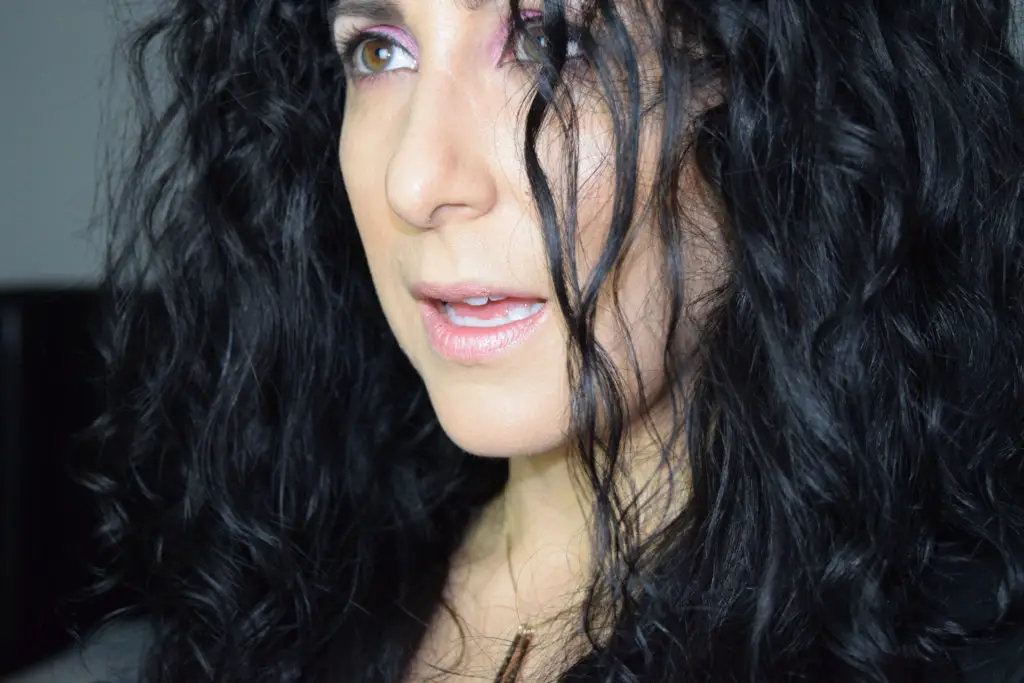
When I think about my parenting style, I feel as if it has shifted over the years, I definitely started out in more of an authoritarian style. I started with that style because that is how I was raised. However, I started to see a lot of anger and frustration coming from my son as he reached ages 3-4 and that is when I shifted.
I started giving him more verbal appreciation for good behavior and gave him more choices. One of the things I did early on was decided on two things that he would have complete control over. Those two things were his hair cut and his clothing. It was always humorous watching him at age four telling a grown man how he would like his hair cut. Meanwhile the barber would be making eyes at me making sure I was ok with everything. My response was always the same, ‘That’s all him.’ Watching my son glow at that response was priceless.
My son jokes now about certain things I wouldn’t let him do or have.There are probably more, but these are the ones I thought of right off the bat. I have never bought or given my son candy, soda, ice cream or dairy milk. He jokes now that his lunches were so healthy that no one at school would ever trade snacks with him. I guess no one liked raisins that much.
I always said that I wanted my son to be well rounded and confident. From a very young age I had my son asking the clerks at the store where certain products were, ordering his own food at restaurants, and doing his own laundry. I wanted to raise him with the confidence to be able to make decisions quickly and to answer questions with poise.
My parental advice: Hug your children, make them laugh, spend time with your children and tell them you love them every single day. I didn’t have a lot of money when I was raising my son, I felt a lot of guilt as a mother because of that. However, I was the mom running around the playground playing tag, I was in the water boogie boarding the ocean waves, I was playing tag in the backyard.
#6 “We started out trying to figure out things we would definitely not compromise upon and generally tend to fill in the gaps as situations arise.”
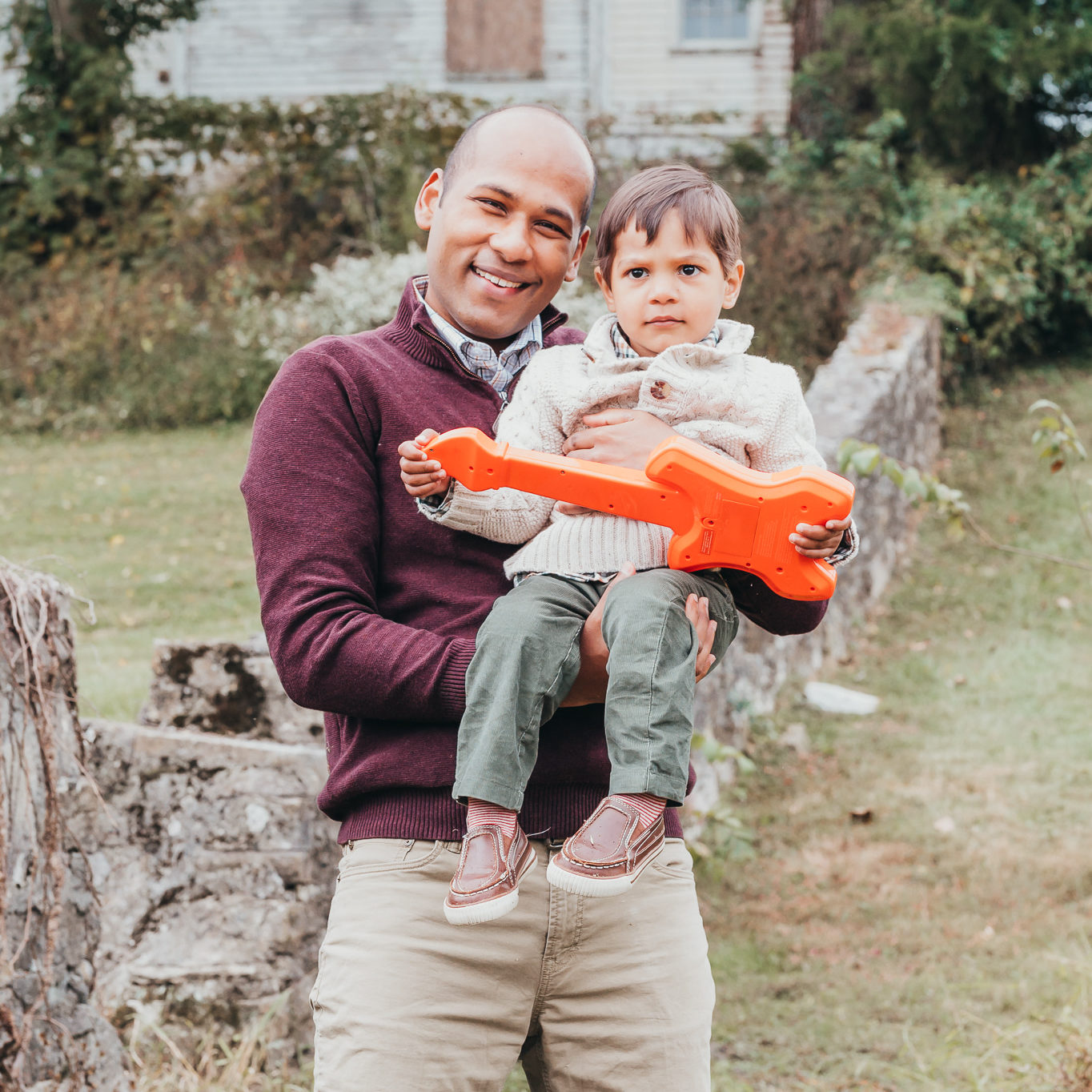
I would like to think that my wife and I practice a very experimental way of parenting. As first-time parents, there’s a whole LOT more to figure out than what most books prescribe. We started out trying to figure out things we would definitely not compromise upon and generally tend to fill in the gaps as situations arise.
For example, potty training was a huge milestone we just achieved with our 2-year-old son. We knew he had to be trained but also wanted to allow him to guide us through the process. To our surprise, this approach to potty training was a lot more successful than us following a regimented plan and forcing him through the process.
Our main goal for our son is for him to treat everyone with dignity and respect, irrespective of their background or beliefs. We do want him to be successful career-wise but want him to realize that relationships matter a lot more than financial success. We would like for him to be curious and experiment with things. Sort of like a person with classic taste and an old soul!
My one piece of good advice for (new) parents is to really enjoy the smaller joys and moments of parenting. It can get overwhelming very quickly trying to balance jobs, family, friends and general health. Sometimes, just a 5-minute tickling session with your kids can make your whole week.
#7 “We use a mix of authoritarian and authoritative parenting.”
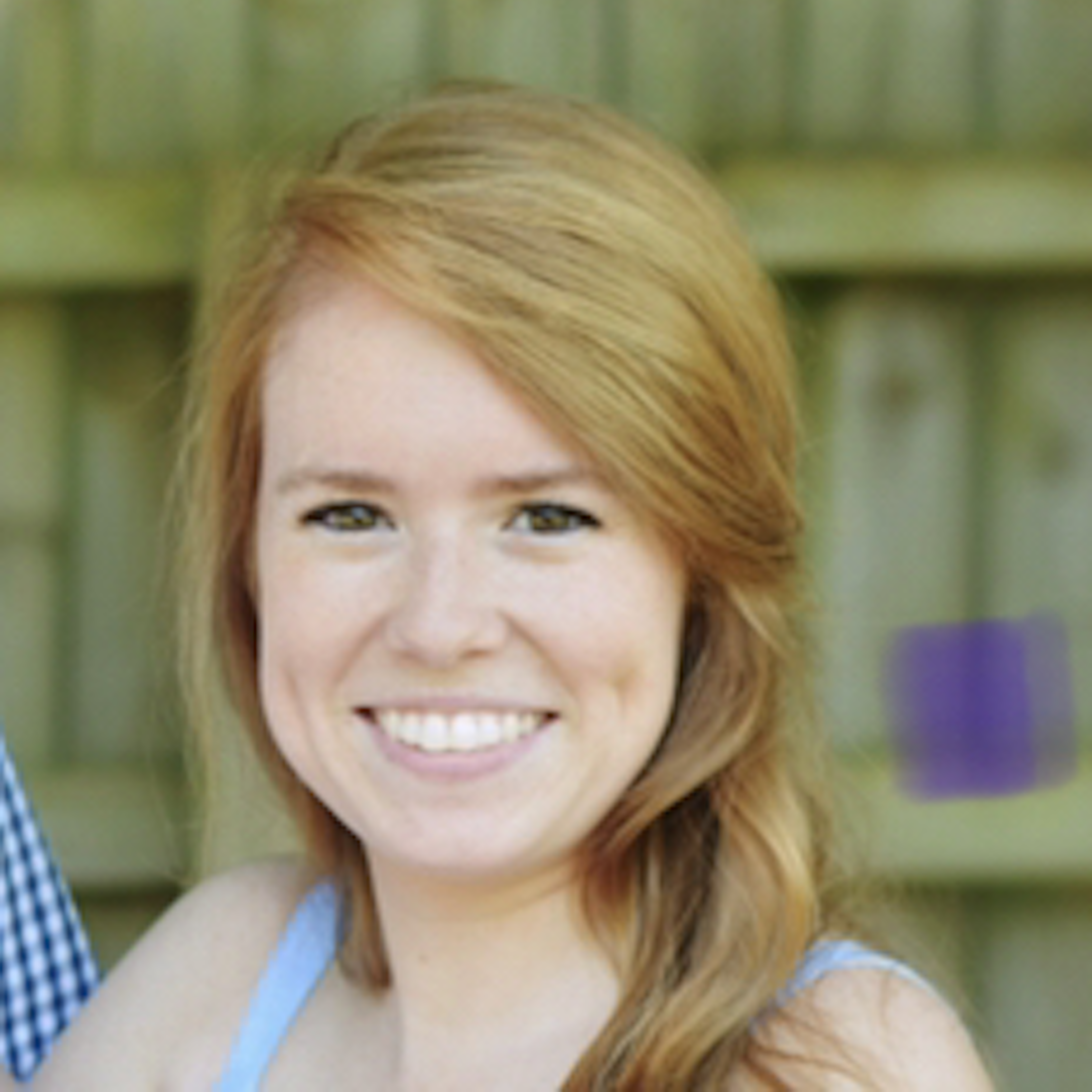
Third Row Adventures
I am a former elementary educator and a behavior analyst. I am also a mother of two young children.
Parenting style I currently practice: We use a mix of authoritarian and authoritative parenting. There are some rules (like don’t hit your sister) that we do not bend on. There are others that we are open to hearing their opinions on. I think it makes children feel like they have more “buy-in” when they feel like they get to be a part of the rule-setting process.
Examples on how we raise our kids: We do not allow our kids to use phones or tablets yet. They are 2 and 3. They are allowed to watch TV but it is screened first and is educational. We also limit their screen time to 1 hour per day. A past parenting fail we learned from was maintaining a schedule that was too rigid. It caused our kids to not be able to deviate from it when we went to new places.
What we wish our children will grow up to be from our parenting: We hope that our children will be obedient to authority figures but also independent thinkers. We pray that they will follow God.
Advice: No two children are the same. Norms and what to expect books are meant to be a general parenting guide and should never cause anxiety. Your gut instinct will tell you if something is wrong and your pediatrician can help confirm or ease your mind. Ask for help! Many parents are always willing to lend an ear or a word of advice.
#8 “Keep learning and don’t be afraid to admit to your child and yourself when you get it wrong.”
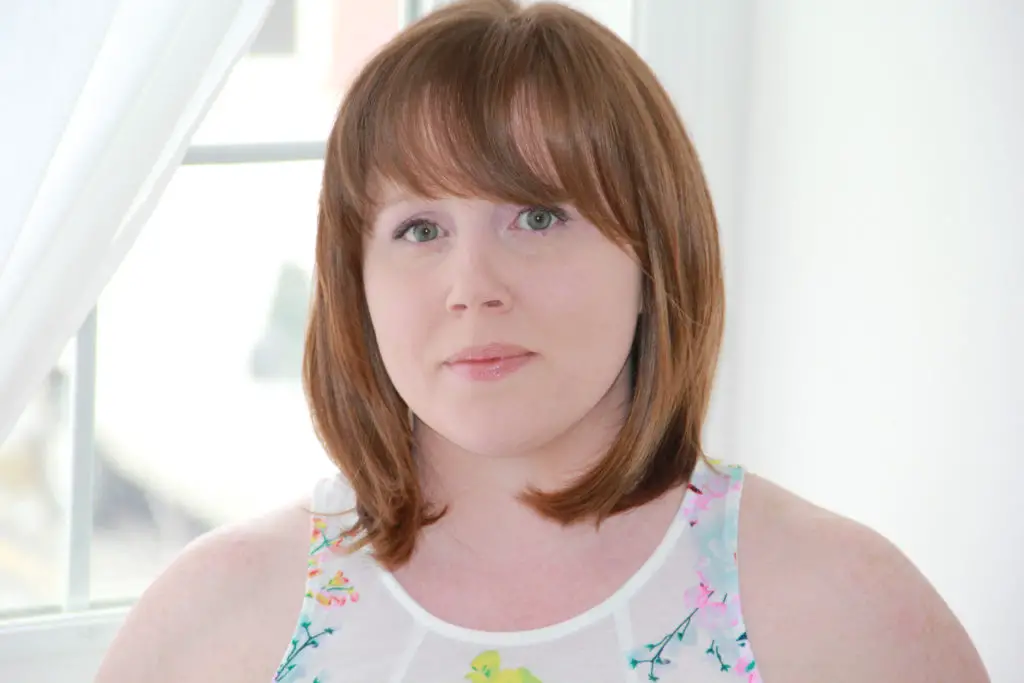
I know that telling a parent how to parent their child(ren) is never a good idea, but I love when we’re able to share our own experiences, fears, child-rearing know-hows and ideas.
I personally try to practice authoritative parenting, with a real focus on her acceptance of emotions both from herself and from others. Having grown up in a toxic environment myself, this accepting, loving, but firm parenting style is very important to me but also my biggest struggle since it often requires making choices different from my own natural tendencies that I picked up in my own childhood.
I’m also learning that negative emotions are ok, right alongside her. It’s not easy, but I feel it’s literally the most important thing I can do for her, and for myself.
It’s my hope that parenting my daughter in this way will encourage her autonomy and give her self-confidence, while also keeping her grounded and able to empathize with others. That’s a tall order that I regularly sweat over and find myself overthinking things a lot.
I have to keep reminding myself that it doesn’t, and can’t be, done in a day and that I don’t have to stress about every single interaction. I do see it paying off already though. I regularly notice her displaying kindness and patience that seems beyond her years at times.
My number one piece of advice for expecting parents or couples looking to start a family is to keep learning and don’t be afraid to admit to your child and yourself when you get it wrong. The majority of us have heavy baggage from our own childhood we need to overcome, so be patient with yourself and keep trying.
#9 “One thing that’s very important to me is sitting down at the dinner table together for family dinner.”

I’m a nutritionist with USA Rx, and when it comes to this parenting topic on raising children, I think one of the best pieces of advice I could give myself as a younger parent would be not to worry about doing what everyone else does. My husband and I do things completely differently from our family – we don’t do date nights, we have never left the kids with grandma, we still co-sleep, etc. but this works for our family.
I will say that one thing that’s very important to me is sitting down at the dinner table together for family dinner. This doesn’t have to be a homecooked meal. Just come together with the people in your household over food and talk about your days. We haven’t always done this, but recently we started and it has helped us feel more connected immensely.
I am also pretty relaxed about what my kids eat, but I do make sure they eat a full serving or two of fruits and vegetables with whatever they want for their health and well-being. For example, they can have pizza, grilled cheese, or chicken nuggets as their main dish, but they also need a full bowl of tomatoes, avocado, fresh fruit, cucumbers, carrots, etc. to go with it. I don’t want them to fear food because mom is a nutritionist. Instead, I want them to learn how to eat and that starts with incorporating healthy foods into what we already love to eat.
#10 “Children learn best when they are having fun.”

The parenting styles I model and admire are practices in decolonization. Much of the precolonial parenting practices viewed children as beings who were close to gods. People who needed support and were integral parts of the community, not people who needed to be controlled or punished. This style of parenting removes hierarchical ideas and promotes connection and collaboration.
In the past I “parented like the police”. The only tools I used were reactive things like isolation (time-outs) and violence (spanking or corporal punishment). When I think about using those tools now, I’m filled with sorrow and remorse. I treated my children in ways that I would never treat an adult. In fact, children are the only group of people in the USA that can be hit in their homes and it not be considered abuse.
After classes, books, therapy and building community with other decolonized parents, I no longer use punishments in my home. I use proactive restorative justice practices to support my children. When my children hit each other, I can ask “Would it feel good if I were to hit you, if I was angry?” their response is always “No”. They have an opportunity to reflect on why hitting their sibling can cause emotional and physical pain, because they know it would cause them pain.
I hope my children will be people who love themselves and their community. I hope they will be people who believe communication and collaboration are the best ways to solve problems. I hope they reject coercion, manipulation and violence as means of engagement. Humans are interdependent beings, we need each other. I hope by modeling collaboration, communication and mutual respect to my daughters they will be people who do the same with others.
My advice to new parents…Handle it with Humor. Children learn best when they are having fun. If you want your children to help you clean, make clean up a silly game. If your children are complaining about all of the things you don’t do for them reply with an exaggerated and playful “I know I’m the WORST parent in life.” They will think you are silly and also reflect on the parent you truly are.
#11 “Being outdoors together helped me be present, and it was wonderful to learn about nature together. “

When it comes to parenting, I can’t name a particular practice that we follow. But I do know that my thoughts about parenting have changed since the pandemic began.
Before March 2020, I struggled to keep my head above water, balancing work and home life. My children, 2 and 4 at the time, were in daycare all day. We crammed family time into the weekends, which were scheduled months-out with activities. I get stressed just thinking about it!
In May, I lost my job, and our lifestyle transformation took on a permanent feel. It was a difficult change, and the one thing that kept me sane was daily walks with my boys. I was reading Scott Sampson’s How to Raise a Wild Child at the time, and walking seemed like a way to redirect our different energies into something healthy and positive.
Being outdoors together helped me be present, and it was wonderful to learn about nature together. We met the birds and plants that thrived in our neighborhood and then expanded to regional and national parks.
As life has reopened, it’s been hard not to fall back into the pressure to keep up with others. There is a part of me that worries about falling behind because of our continued focus on free time and the outdoors. But having seen both sides, I try to resist the urge to fill up the calendar again. I want my children to grow up comfortable and confident outdoors.
I’m ok with them being bored, knowing that it helps foster curiosity and imagination.
My advice to new parents is to trust your gut. Do what feels comfortable and healthy, and try not to worry about what everyone else is doing.
#12 “In our family, we try to focus on teaching our kids to be healthy and being a kind person. I also want them to learn to think for themselves and be independent.”

A Touch of Homeschooling
I am a homeschooling mom of 3 and I have an A.A.S. in Early Childhood Studies. I have been parenting for over 11 years and homeschooling for 8 years. When it comes to my parenting style I am definitely more of a mixture. I try to blend positive parenting with strong authoritarian boundaries. I want my kids to understand why I have rules in place and guide them with patience and understanding. But I also want them to know that my husband and I set the rules for our home and we expect them to be followed.
In our family, we try to focus on teaching our kids to be healthy and being a kind person. I also want them to learn to think for themselves and be independent. Some of our special house rules are:
– No screen time until 4 pm: Being homeschooled my kids have access to screens all day. Having a limit helps me make sure they don’t get too much screen time.
– 3 pm sugary snack time treat: We switched our dessert to a 3 pm snack time treat. I didn’t like the idea of my kids stuffing themselves on at dinnertime just so they could have dessert. With the switch, they still get to have a little treat each day, but they’re learning to respect when their bodies are full.
– Every one does 1 sport: Once my kids get around 4 years old, everyone has to do a sport. Parents included. We feel it’s very important to make exercise a lifelong habit, so we start teaching that early. They can pick which sport they do, but they have to pick at least one.
I want my children to grow up and think for themselves, be kind, and be healthy and happy kids. I definitely hope to instill more confidence and faith in themselves than I had growing up.
My advice to expecting parents would be to relax! None of us actually knows what we’re doing lol. We’re all just making it up as we go along.
I would also tell them to look into reading a few parenting books or taking a few parenting classes. The more you understand child development and what’s normal for kids to do at certain ages, you’ll be able to have higher self-esteem to parent and teach kids a little more confidently.
#13 “Acknowledging our son’s feelings and helping him navigate through those feelings has made a world of difference for all of us.”
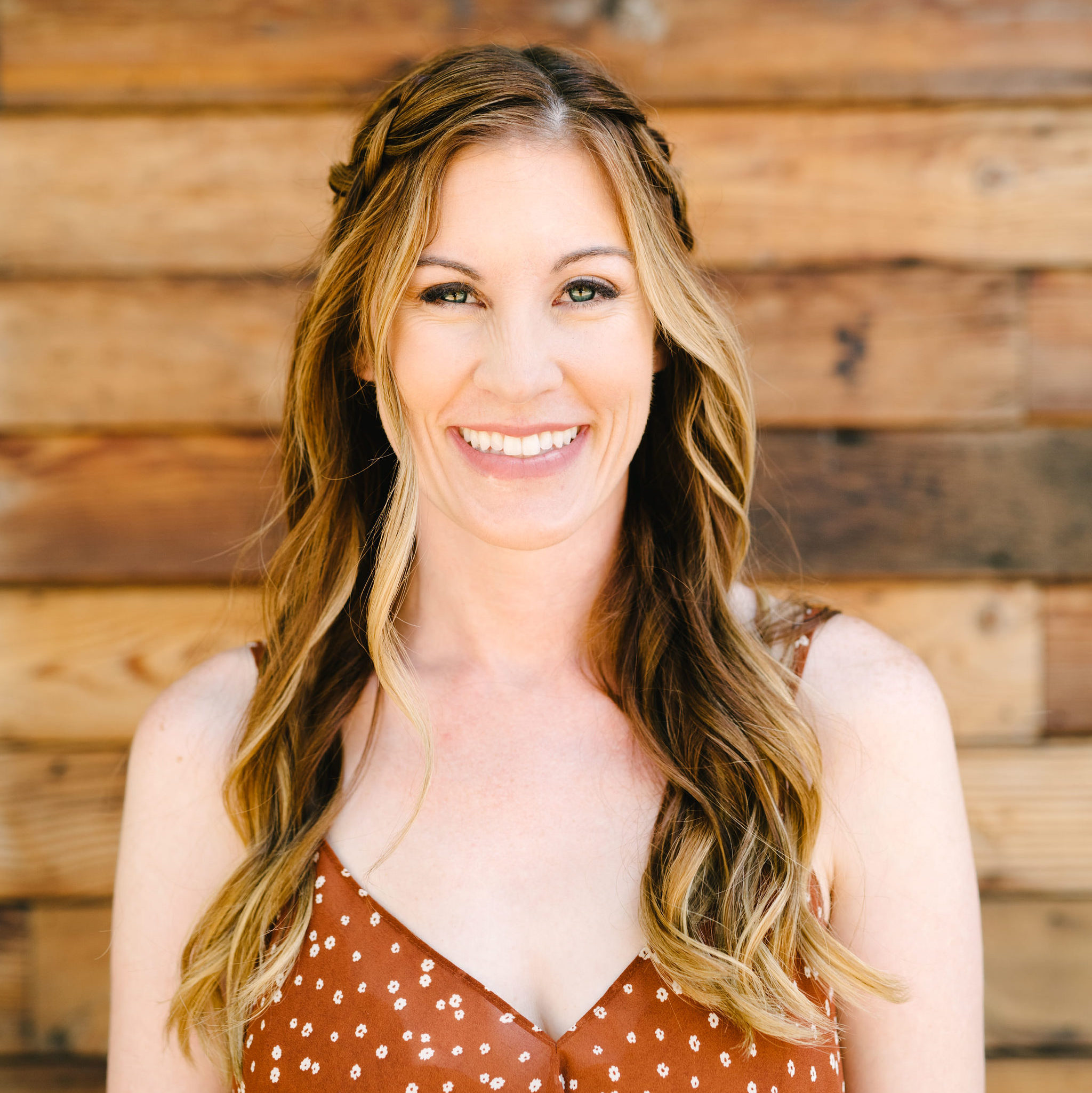
I live in Central Coast California with my husband and our three-year-old son. We follow the respectful parenting style of RIE developed by Magda Gerber. This parenting style focuses on communicating authentically with your child by showing respect, communicating about real things going on, and acknowledging your child’s responses, thoughts, and feelings.
Navigating a world with a toddler has its parenting challenges, especially in the tantrum department. While no one method will solve all your problems, as a parent you have to find what works for you. This parenting style has been a game-changer for us. We have noticed a huge reduction in tantrums and resistance to simple things like trying to get out the door in the morning for preschool. Acknowledging our son’s feelings and helping him navigate through those feelings has made a world of difference for all of us.
As a parent, my hope is to raise a kind and respectful son. I believe showing him the same respect and kindness I hope he develops in himself is a great way to start laying down that foundation for him.
My advice for expecting parents and couples looking to start a family is to go with your gut. There are so many ways to raise a child. Do your research and decide on what childrearing practices will work best for you and your family.
#14 “Teach them how to learn and work hard so they don’t need to depend on others to be successful – they create their own success.”
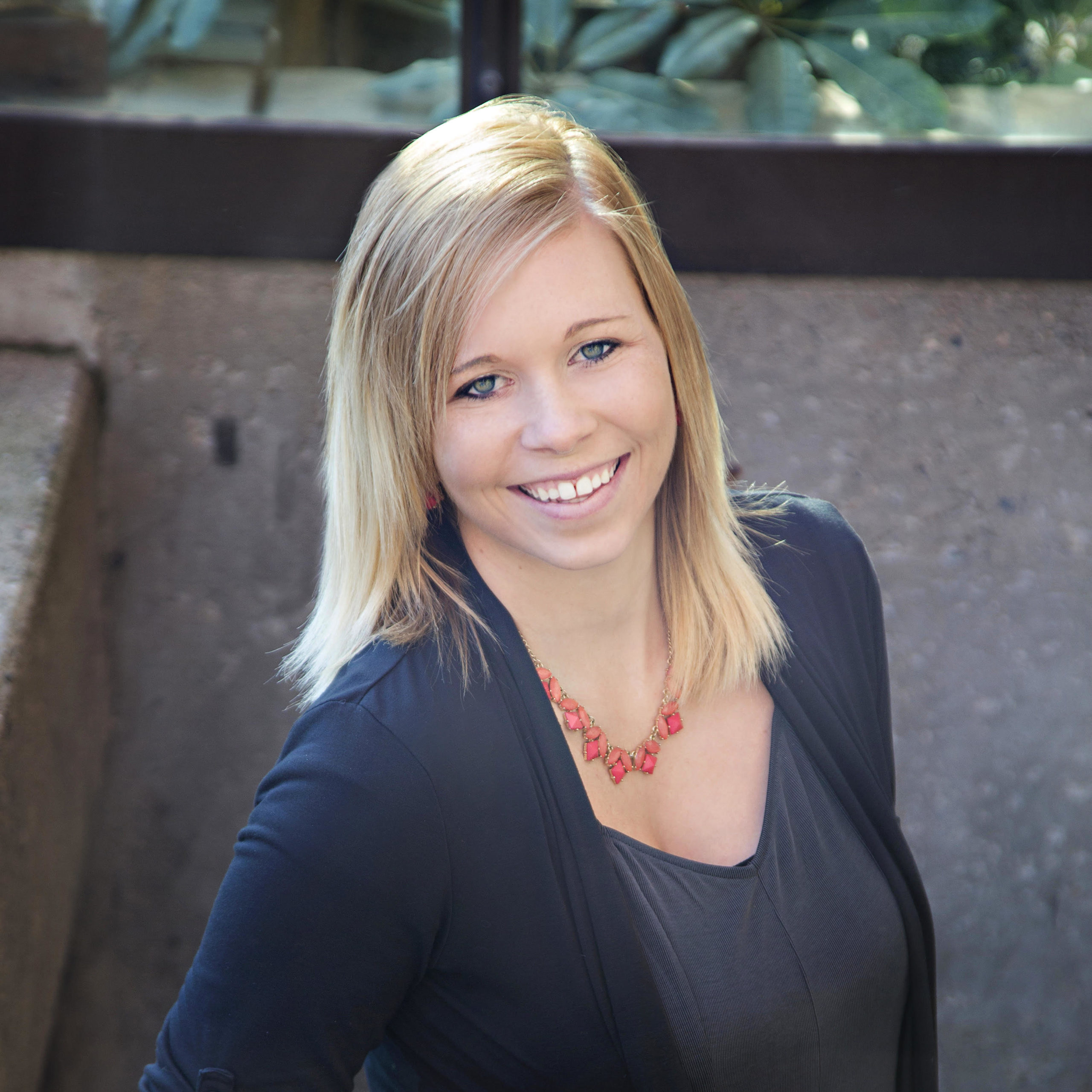
I’m a big fan of hands-off parenting with my 1- and 4-year-old girls. I encourage them to problem solve, do their own research, and self-entertain, and step in when help is needed or to work on a project. I recently read the book There’s No Such Thing as Bad Weather by Linda Akeson McGurk, which focuses on the Scandinavian principles of outdoor play and learning through experience, and I try to emulate that as well.
We try to limit screen time – my four-year-old doesn’t have her own tablet – and instead encourage arts and crafts, puzzles, and outdoor time. But we do appreciate a good movie night, of course. I think that tablets have a place when it comes to learning, but I believe they should not be a pacifier unless you’re desperate.
Independence – it’s the focus of everything I try to instill. Teach them how to learn and work hard so they don’t need to depend on others to be successful – they create their own success. And I hope they advocate for themselves in all life’s situations.
Do what feels right to you. Many parents and experts will say one thing, your mother in law and other family members will say another, but the only parenting method that truly works is whatever comes naturally for you. Every family has different histories, passions, and cultures – there is no right or wrong. As long as we’re raising kind, loving little humans, we’re doing the right thing.
#15 “What I want most out of my parenting is for my kids to have a good idea of what is expected of them as they grow up and to know that they are the best things to ever happen to me.”

I was raised by a family full of drug addicts and alcoholics and had no idea what a healthy relationship or responsible adult looked or acted like, so what I want most out of my parenting is for my kids to have a good idea of what is expected of them as they grow up and to know that they are the best things to ever happen to me.
Kids aren’t asked to be born and they can’t pick their parents so I feel like it is my duty to not take them for granted.
With my 2 daughters, the 3 most important things are clear messages, empathy towards her feelings and experiences, and eliminating power struggles.
This is what in psychology is known as authoritative parenting, in which parents aim to balance being warm and encouraging while also being consistent in following through with limits when needed.
It can feel rewarding when she does something that she previously had a hard time doing – like cutting food into small pieces or trying new foods – but even when she still does not want to do it after I have said my piece on this subject matter, there’s always another chance later on down the line when she might decide to comply more willingly.
#16 “Something that has always been important to us is having one designated family night each week.”
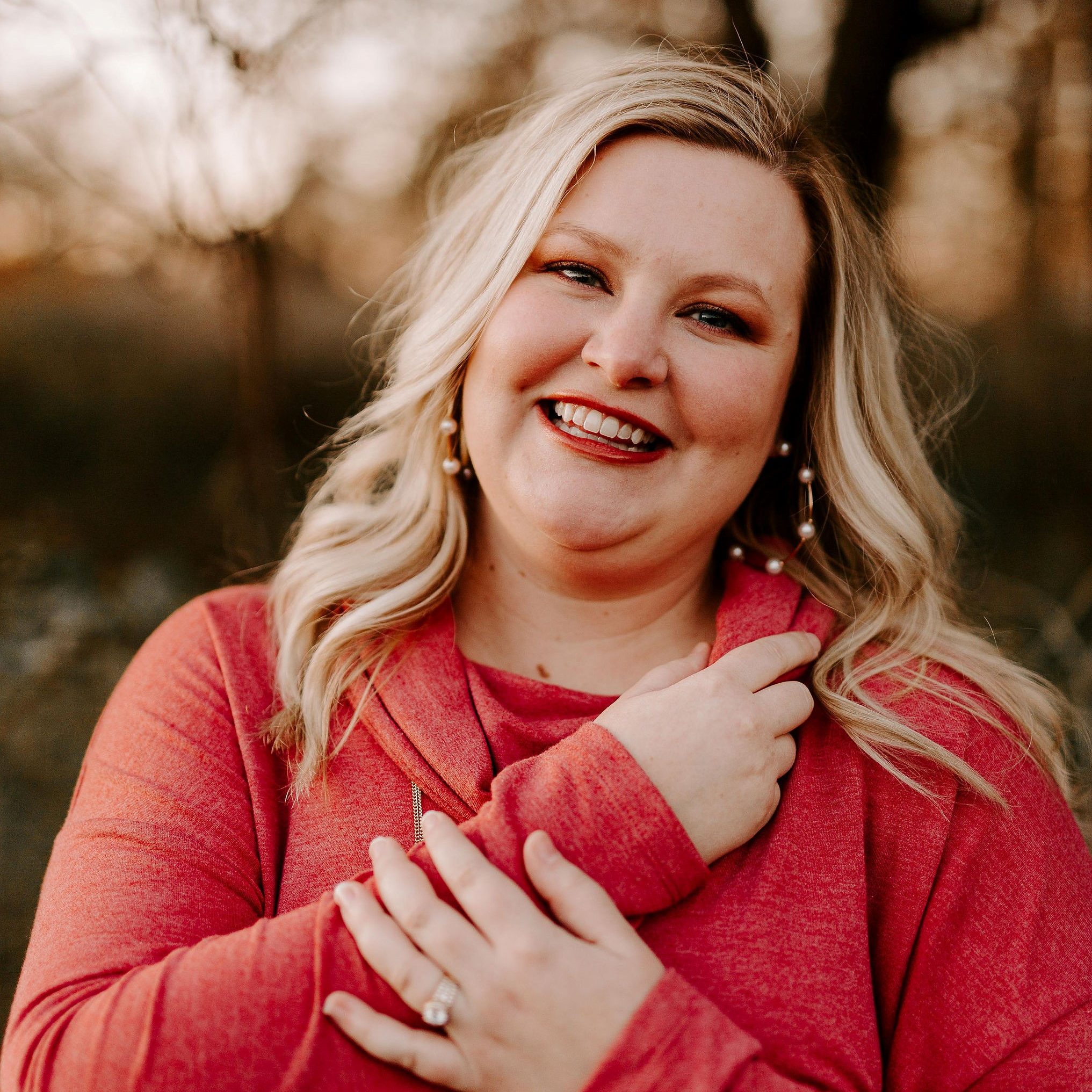
We are a Christian household, and we try and teach and raise our daughter based on what God says in the Bible. We believe that He gave our daughter to us as a gift and we want to raise her in faith!
One mistake I think we made when my daughter was little was that we did a LOT of stuff for her. I would’ve loved to teach her a little more independence – we are working on it now but it’s something I would’ve loved to instill in her at a younger age. For example, letting her help with things more like laundry and putting on her shoes, small tasks, rather than just doing it myself because it’s quicker and the “right” way. Refolding the laundry is not the end of the world haha!
Something that has always been important to us is having one designated family night each week. We enjoy doing fun activities together and make sure that we can connect together as parent and child on a regular basis.
Also, making sure that my husband and I are willing to say sorry when we are wrong. It’s huge! We want her to know that Mommy and Daddy aren’t perfect and we make mistakes too, but that God forgives us and helps us to ask for forgiveness, and forgive others. We want her to be compassionate towards others, and grow in her love for the Lord!
Some advice I would like to give to new or expecting parents is to remember you and your spouse are on the same team. So when issues or trials come your way, remember that you two are facing them together and NOT each other. Love each other well, don’t neglect time together, so that your kids can see a healthy marriage and how they should be treated as they get older!
#17 “Communication and dialogue are the most crucial aspects of raising my children.”

For me, communication and dialogue are the most crucial aspects of raising my children, or even with raising bilingual children. Rather than having the children raised in an authoritarian way where the parents are always right, we strive for an environment where they can ask questions, give their opinions, and also understand the decisions made.
To help our children become proficient at managing their time, we have certain rules in the house where it is very important to measure time. As an example, we give our children hourglasses that measure how much time they’re allowed to spend on the computer, which is usually 30 minutes after homework is completed.
With these tactics, we have been able to have better communication with my children and generate more obedience when it comes to meeting the set times for different activities.
#18 “The Authoritative style is the framework around which I try to use my intuitions to deal with specific situations.”

I practice an Intuitive Style overlayed on a base of Authoritarian style. The Authoritative style is the framework around which I try to use my intuitions to deal with specific situations.
I feel the biggest challenge is to know when to be flexible and to what extent. In this regard, intuition has brought me great relief and peace of mind.
Just a few months back, my wife and I were at a loss as to how to instill basic values of helping around the house and keeping their own items in place especially since extended corona lockdowns were taking a toll mentally. We didn’t want to use punishments anymore and incentives worked temporarily.
So we tried a points system where they would earn points by completing schoolwork, a little bit of house help, helping one another, separate points for no abuses day long, etc. It had all the issues covered- limits, expectations, consequences of crossing boundaries with the cherry on top that it was their choice not to earn points from a particular job. They could earn them elsewhere. Plus, we would modify it every week after discussing it with the kids.
But my intuition warned me and on processing the intuitive warnings I realised that the point system would be fine for a short period. Over time, they would learn not to give without quid pro quo- a factor I had never even considered!
So we implemented it till the point my intuition allowed me to. The results- none of my kids use abuses in daily life- they own responsibility for it. Other instances where intuition has helped- deciding to take a child to the doctor or to knowing when to scold them or forgive them, intuition has really pitched in well.
Our focus has been to inculcate qualities of humaneness in our kids. My advice to couples is: for any problem faced by you in raising your children, of whatever age group, gather the facts from outside but after all that- look within. As mothers or fathers you will always know within what is truly best for your child.
#19 “My parenting style is less is more, as I have learnt that when raising children, doing more will only lead to burnout.”
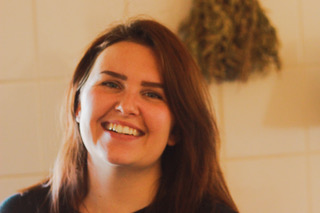
I am a stay at mum to five (in Australia) and how I raise my children to be, thoughtful, kind, and respectful, by including and teaching new skills and habits that I can only hope will create adults who will contribute to society in the way God intended. My parenting style is less is more, as I have learnt that when raising children, doing more only lead to burnout, it definitely exists in parenthood leading to choices made for the short term rather than raising adults.
I am always on the lookout for a child who is changing, I find taking on less allows me to keep a more acute eye on personalities rather than a to-do list. All of my time is spent with them, It’s hard, as it is a blessing, A mistake I have made with my elder children is striving to be ‘friends’ since we spend so much time together, and very quickly things spiralled out of control in my home. Now I have rules and discipline, not so much because I enjoy it, but I realised the children I was raising were not going to be the adults I wanted to send out into the world.
I have rules, no screen during the week, if a chore they are given is not done properly they must do that job until it is done well, no matter how long it takes. They are to respect adults by addressing by mister and their last name, they are to learn and are given tasks to care for their younger siblings. I instil that work is how we earn, and reward is enjoyed after a job well done that respecting others gets you a long way even when you don’t like it, and your kindness people will remember you for.
My advice for young/to be parents? Enjoy each season, don’t over plan, and don’t take on more than you can handle, raising children is a long process and you can burn out. Take the advice you want to, learn from your mistakes, Teach one thing not five, create one goal for yourself or your child and rejoice when you reach it. Everyone will tell you this is the best time of your life, keep that in mind.
#20 “One of the things we learned early on was to allow him space to become his own person.”
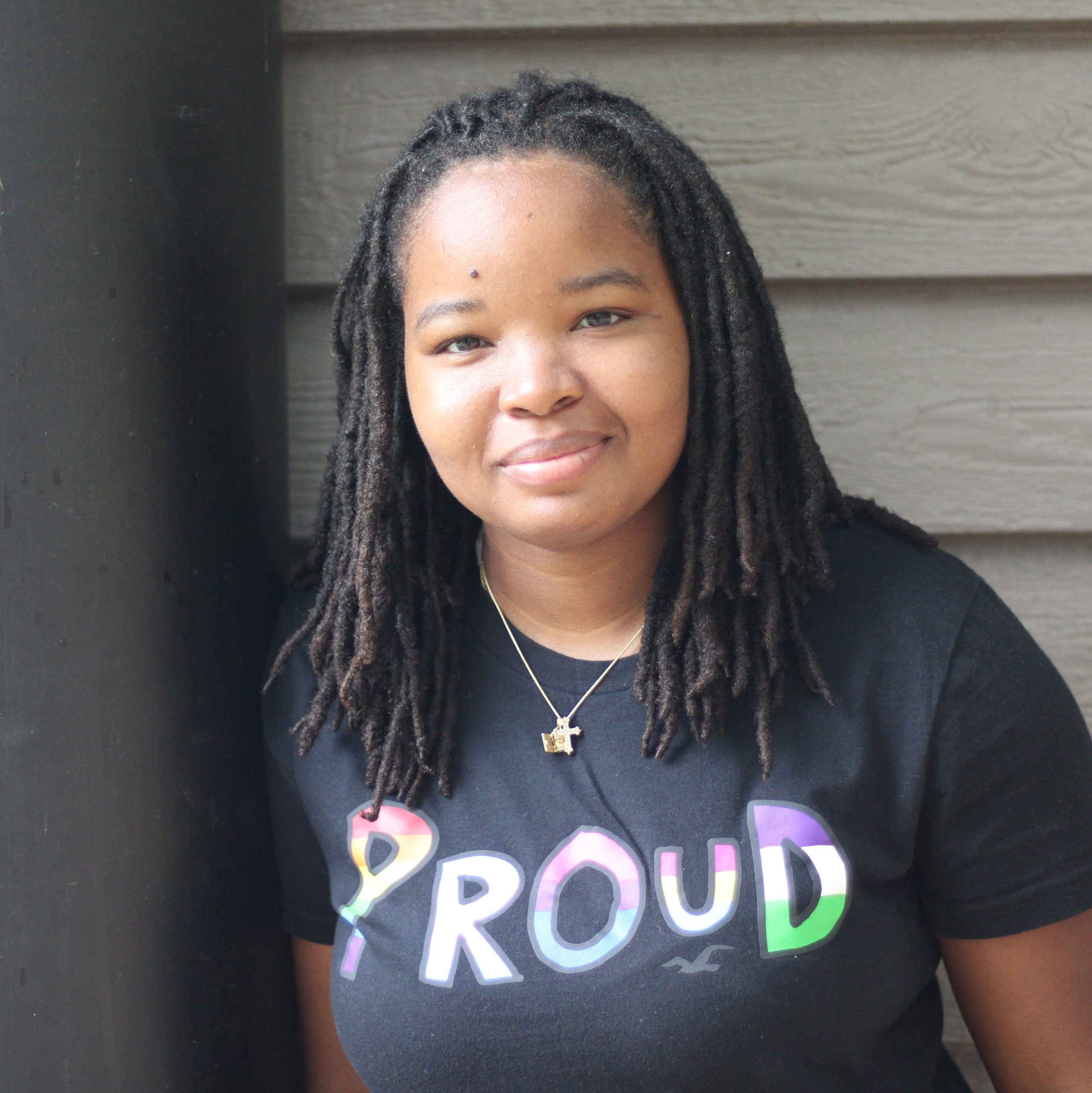
We have a parenting approach that allows our son to have the freedom to be a kid. We are a mixture of permissive and authoritative parenting styles. We are raising children somewhat unconventionally, in that we are a full-time travel family, so our son adapts to change quickly. He is comfortable in most situations because we have empowered him. He isn’t afraid of new places.
One of the things we learned early on was to allow him space to become his own person. We would hover over him until one day he said, “I can do it” and we decided to back off. We let him try to build his confidence and come to us when he is ready. There are times when he wants to be alone, and we respect his space. We let him know we are here for him when he is ready.
We hope our son grows to be a compassionate, giving, and humble person. Traveling for us isn’t just about getting cool pictures and doing fun activities. We make it a point to give back when we travel. He is with us with we give out food to families, clothes, or even toys to kids. He watches how we treat others and knows that we can help, so we do. Even as a 2-year-old, he gave his fries to a homeless man while we were walking down the street. He said, french fries, eat, then smiled and continued walking. Those are the moments that make me a proud parent.
My advice for parents to be is to give themselves a break. As parents, we are so hard on ourselves, but you don’t have to be. Allow yourself to make mistakes, it won’t be the end of the world. You will make mistakes, and it’s okay. There are no perfect kids, and there are no perfect parents.
I always remind myself that it’s great to take the advice of others, but ultimately you know what is best for your child. People thought we were crazy when we sold everything to travel full-time with a 14-month-old. Here we are nearly two years later with an amazingly inquisitive, intelligent, and compassionate 3-year-old that has explored several counties, and after living in Mexico for a year, speaks Spanish.
#21 “My parenting mantras have always been talking and listening a lot, lead by example, say ‘I love you’ every day and be inclusive in your parenting.”

I am a Norland Trained Nanny and mum. When it comes to parenting styles, it is tricky to stick to one particular style or even to put a name to it. All children are different with different personalities and what works for one will not necessarily work for another. Therefore, I practise intuitive parenting.
My parenting mantras have always been talking and listening a lot, lead by example, say words like ‘I love you’ every day and be inclusive in your parenting, that is to say make parenting a way of life and establish a sense of family.
One area of parenting that I feel needs careful attention is the use of screens and gadgets. I, personally, am anti gadgets and screens in the early years so would try and avoid them for as long as possible. When their inclusion is inevitable you should have very clear rules about safe, respectful screen use, that is adhered to by all the family.
I wish for them to be good human beings. For me this is probably one of the most important things you can teach your children as having healthy relationships, leads to a happier life, which in turn leads to a more successful one.
My advice to expecting parents to be would be to enjoy every minute or small things, teach your children to be kind to embrace nature and love, talk and listen to each other a lot!
#22 “Having a dysfunctional co-parenting relationship is likely to negatively impact your child more than a perfect parenting style will help them.”

I have raised three kids, all using different parenting styles and with different co-parents involved. My conclusion? The parenting style doesn’t matter nearly as much as keeping conflict out of the home (or homes).
From page 69 of our award-winning book, Baby Out of Wedlock: Co-Parenting Basics From Pregnancy to Custody:
Research shows the quality of co-parenting has a significant impact on children’s emotional wellbeing. According to the LMFTs (Licensed Marriage and Family Therapists) we know, co-parental conflict can lead to the development of emotional and behavioral problems in your child, such as:
- Lower self-esteem
- Difficulty forming healthy adult relationships
- Increased risk of substance abuse/addiction
- Difficulty communicating
- Poor emotional regulation
- Personality disorders
- Poor academic performance
- Increased risk of anxiety, depression, and suicidal ideation
Obviously, parenting styles matter also, but Jess and I believe that if you have to choose between your preferred parenting style and a healthy co-parenting relationship, the co-parenting relationship should take priority. In other words, having a dysfunctional co-parenting relationship is likely to negatively impact your child more than a perfect parenting style will help them.
#23 “My parenting style is completely different called Gentle Parenting. This method recognizes and respects the child’s feelings and boundaries.”

My family immigrated from China and I was the first to be born here in the US. I grew up in a conservative and disciplined household, which meant respecting elders, doing what you were told, and feelings were rarely spoken about. I believe my parents raised me the same way they were raised, and had little to no awareness of other parenting styles.
My parenting style, called Gentle Parenting, is completely different from previous generations. This method recognizes and respects the child’s feelings and boundaries. I am a very empathetic person, so Gentle Parenting is an effective technique that feels natural to me.
I want my son to have positive associations towards experiences while recognizing any feelings he may have. For example, my son will play and throw food while in his high chair. My solution was to feed him on the floor while he played with his toys. I did this for two reasons: I didn’t want my son to have negative feelings towards eating by forcing him to eat, and I didn’t want him to associate food as toys. By recognizing his feelings, I was able to find a compromise that worked for both of us.
The world is new for babies and young children. They have complex emotions and they are learning how to express themselves. It’s especially challenging for them when they are not yet speaking. Non-verbal communication, such as baby sign-language, can help a child communicate what they want and start associating words. Patience is key because learning takes time.
With the Gentle Parenting philosophy, I would hope for my child to be able to express himself with confidence. He would be in tune with his feelings and have empathy for others.
My tip for new parents during the early months of newborn care is to realize that it’s a marathon and teamwork is essential. It will be a never-ending cycle of feedings, diaper changes, laundry, dishwashing, while operating on very little sleep. Establish a routine and create a system of delegation, and jot everything down on a baby whiteboard so you don’t forget. For example, my husband fed the baby while I pumped, and washed the bottles. I would be in charge of bathing the baby and putting the baby to sleep. We would switch off for the 3AM feeding. This will allow each partner to be involved with raising the baby while the other rests.
#24 “We put them in situations where they can succeed and get increased levels of responsibility and autonomy.”

We treat our children as individuals, and there is no one-size-fits-all approach to parenting style for us. We are fairly free-range when it comes to letting our kids guide their activities and personal development, with our support of course. Our successful parenting goal is to make our kids self-sufficient and well-equipped for adulting. Part of that comes from empowerment and engagement. After all, we want to help our kids become independent, so we put them in situations where they can succeed and get increased levels of responsibility and autonomy.
We’ve always been sticklers about homework and success in (and attention to) school and academic achievement. While we don’t push our kids too hard to get an A in everything, our kids know that our expectation is for them to treat school as their job, much the same way that we go to work every day.
Another house rule that we enforce regularly is mutual respect. Rudeness and disrespectful backtalk – whether to us or to their siblings – is absolutely not tolerated. One of the lessons we teach is that respect is earned both ways, and showing respect will earn them respect.
Blind obedience to authority is not something we teach, and we hope our children grow up to be good decision-makers, empathetic humans, and happy with their life choices. We want our kids growing up to be the person they want to become, whether that’s career ambitions or pursuit of hobbies or choosing their own studies at college. We see our job as preparing our kids for the world, and a big part of that is empowering them to make choices about their lives so they are confident and equipped to handle life’s challenges and opportunities.
Take others’ advice with a grain of salt. Nothing works for every baby or every child. Challenges one parent faces may not be challenges you face. However, it’s important to have some conversations with your partner before you have kids.
Perhaps the biggest is religion, and there should be agreement on expectations for religious training and participation. Another should be about parenting styles and individual values – do you and your partner see eye-to-eye on things like discipline, limits, and expectations? It’s best to at least have a conversation about how you will each approach parenting.
#25 ” I am more of a mixed permissive and authoritative. As much as possible, I let my child develop her own disposition and way of things on her own.”

I am more of a mixed permissive and authoritative. As much as possible, I let my child develop her own disposition and way of things on her own. I want her to learn everything out of her own curiosity and engagement throughout her child development in helpful, important ways.
As much as I am rarely enforcing rules, there are still certain things that I wanted her to learn to have limits on. Let’s say when it comes to eating, I want her to eat like how she wants to eat her food and choose the selection of food that she wants but I also enforce her to practice being well behaved while at the table. I always talk to her whenever I want her to know something or when she is being stubborn. I am not that strict but I want her to act as a decent child too but she is free to do and choose whatever she likes as long as it doesn’t cross any moral values.
I was raised in a very strict Catholic family and there are really so many rules. I raised my kid to know that it is okay to not finish your food if you are really full, either she can save it for later or just get the amount that she can finish. I raise her to take a bath at least twice a day. She fully knows that after eating she has to put back her highchair, after playing to put back her toys and books in its container.
She knows how to admit that she is wrong and say sorry or thank you when someone does her a favour. I don’t want my child to be ashamed of telling me that she did wrong or something was wrong. She knows what she wants and likes and she is not afraid to say no if she doesn’t like to. I also respect her personal space and privacy when she does something she likes. I don’t enforce my wants or my failed dreams on her as I want her to be her own self.
I hope for her to be whoever she wants to be. I always want her to know that I always have her back right or wrong. I wish for her to grow up as a decent person knowing by heart the moral values I taught her. I want her to respect people in general and be brave in moving forward on her dreams in the long run. I don’t want her to be afraid of hard work and committing mistakes as long as she knows how to get up every time she falls.
Patience, stability, honesty, and respect are key. Patience because there are a lot of bumpy rides along the way from conception to raising a child. Stability is our obligation to our kids. Please do not pass down your responsibilities on them, as much as possible be a good example for them. If they cannot see you taking responsibility for them, how could they do the same to their own?
Honesty is vital as the more genuine your intentions towards your child, the more they will appreciate the things you do and enforce them. Do not push them to do things they don’t like or mention that they are not comfortable with. I always ask my daughter if she is fine with this and that and if not and I see potential, I will encourage her. If she still doesn’t like it, I won’t force it anymore.
Never humiliate her in public, always address your issues at home privately. Respect is important because they are human beings too. They might be fragile still but that alone you should have to respect.
#26 “I’m always connected and know what’s going on in their lives. But I’m not overbearing or annoying the way other parents can be.”

Tongue Tie Life
I have evolved into a tough-love style of parenting but I’m lots of fun! I am a huggy, open-book-type parent too. We discuss everything !!!! My oldest son is in college and we have such a strong connection and talk almost every day. I hear so many moms complain their sons never call. But I think it’s the way I interacted with them. I’m always connected and know what’s going on in their lives. But I’m not overbearing or annoying the way other parents can be.
A big rule I have reinforced is no phones during dinner. While eating out at restaurants all phones stay in the car and we bring a game to play.
I wish my kids not to sweat the small stuff and live a life not full of stuff. But rather be filled with quality relationships and experiences.
My biggest advice for expecting parents is not to rule out tongue, lip and buccal (cheek) ties at birth. My kids would have been better sleepers, not had speech delays, picky eater issues, scoliosis, sleep apnea and so much more if I would have known about their ties. Unfortunately, pediatricians are not educated about this. The website Tongue Tie Life guides a parent step by step with signs and symptoms to doctors that specialize in this listed by state and country. What I would have given to know this valuable information as a new parent!
#27 “I focus on giving my kids an opportunity to be in charge of their own life.”

At home, I focus on giving my kids an opportunity to be in charge of their own life. I teach skills that help people build resilience for when life throws them a curveball in other parents.
Some examples of ways I raise my kids are having them do chores, not giving them electronics until age 5, and no sugar before age 3. Another thing I have learned from my mistakes is not to have two rules for the same thing. For example, I am being told to brush my teeth before bed and that it’s time to go to sleep when you haven’t finished brushing your teeth.
I want my child to grow up to be an obedient person who is faithful to God.
Some say it’s much easier for children raised in strict households to obey their parents and live by Christian values because the only people they would associate with are believers. When you’re surrounded by like-minded friends or at church, you don’t want to disappoint them. The desire for approval from those around them can outweigh any personal selfish desires, which may come naturally when they’re young but quickly get lost as they mature. An obedient child will likely grow into a lifelong servant of God and help strengthen their family too!
Some parenting tips for parents: If you’re a new parent, don’t have two rules for the same thing. For example: If you tell your child to brush their teeth before bedtime and then tell them it’s time for bed when they haven’t finished brushing their teeth. Your child will learn these is two separate events.
Make sure you always follow through with disciplinary actions (e.g., if you say no dessert unless they eat their dinner, then make them sit there until they’ve finished it). This way, your children can see where the boundaries are. And never lose your cool.
Don’t be afraid of making mistakes – it’s going to happen, and sometimes you may make mistakes due to tiredness. Just make sure you own up to them and learn from your experiences.
#28 “Once they develop their minds and get a grasp of what is right and wrong, parents should start letting them learn things on their own, while still providing proper guidance.”

My kids are all grown up now, so my parenting style is a bit more old-school compared to how parents would likely raise their kids today. But I would like to think that the general concepts are the same.
Gadgets weren’t a big thing yet when they were young, but one thing I made sure of is that mealtimes should strictly be family time. As much as possible, we didn’t turn on the TV even if we had one by the table. My wife and I made sure that we spent that time talking as a family.
The one mistake we probably made is that we should’ve let go of the helicopter parenting much earlier. Up until our kids were ten years old, we were still telling them what to do.
I realize that it only works until a certain age, and once they develop their minds and get a grasp of what is right and wrong, parents should start letting them learn things on their own, while still providing proper guidance.
What I wanted my kids when they grew up was for them to have respect for all people. We didn’t raise them to fear anyone, but we put a ton of value in showing respect. And I would like to say we’ve done a great job with that.
#29 “We implemented a strict no gadget policy.”

I was brought by an authoritatively friendly parent which I think is an ideal parenting technique. While allowing a safe, comfortable and especially fun environment for me, they also maintained an authoritative presence to remind us of who really has the final say.
With my first child, we implemented a strict no gadget policy. When my child joined preschool and had difficulty catching up to his peers we decided to adopt moderation instead of absolution in terms of technology. We figure being too strong with the rules and forcing them on your children will only make them look for loopholes to do it behind your back. Be open with them and don’t strictly say no unless it is absolutely necessary.
I hope to have turned my little person into a well-rounded and confident adult. Though no one is truly ever prepared to bring up a whole human being and be accountable for their well-being, remember you cannot control everything. Do not be too hard on yourself for making mistakes.
#30 “I taught my children the importance of consent because consent requires respect and communication.”

Back then, I was more of an Authoritarian type of parent; I used to impose rules strictly, and these are needed to be followed, or else there’s a consequence. But as years went by, I learned how to let loose when it comes to handling my children, which made us grow fonder with each other.
I remember that I taught my children the importance of consent because consent requires respect and communication. I explained to them that they needed to ask permission for something to happen. We practice it daily by executing it naturally. i.e., I would ask my daughter if she wanted to join me to walk outside. I would ask them if it is okay to kiss or hug them when they did something incredible; if they didn’t want to, I would show them that it is totally fine, instead of forcing them or using bribes.
I wanted them to explore their interests as well. I let them join art classes, dance classes, etc., for them to maximize their potential and what field they would excel in.
It will be such an honor to see my children grow to be caring and respectful members of society. Apply basic human decency because, after all, this world needs a little kindness each day.
Being a parent will turn your world upside down, but the good thing is you’re going to have a mini version of both of you combined in a tiny body. Embrace the changes and prepare for the mental and emotional challenges that occur when a child is born.
#31 “We’ve always taught our kids that they are a part of our family team.”

Before I become a mom fifteen years ago, I had a lovely vision of exactly the type of mom I wanted to be. I’d be calm and collected at every moment, and my kids would never play with toys with batteries or throw a temper tantrum in public.
And then I actually had kids. Five of them.
Today my parenting style is definitely authoritative, with more permissive parenting than I probably am willing to admit.
Now that my kids are getting older, I’m trying to find the golden mean of giving them room to grow and experience life while still showing them that I care and want to be involved in their lives.
My husband and I have had three very defined and unchanging rules for our kids over the years:
- Be kind.
- Be honest.
- Do your best.
We’ve always taught our kids that they are a part of our family team – that every member has an important role to play, everyone has a responsibility to contribute, and there is no way for anyone to ever be kicked off the team!
My greatest wish for my kids is that they’ll become kind, contributing adults who know they can make an impact on the world around them.
While parenting can feel like a huge challenge, my biggest piece of advice for new parents is to give yourself and your child some grace – while your kids are learning minute by minute, so are you.
#32 “Baby-led parenting helps raise calm and happy kids.”

I strongly believe in the baby-led approach to parenting. I believe that letting kids decide the course of their day and life helps them to grow up as independent thinkers capable of decision-making. While kids need parents to facilitate the basics, the space to grow independently works wonders for their mental health.
In our house, we don’t spoon feed; kids are offered the food and they are free to decide the amount. We also give them options when it comes to choosing clothes, buying toys, or deciding whether to study or play. This gives them a sense of control over their day and they progressively get better at decision making. It also helps us to avoid tantrums.
Contrary to the popular perception, baby-led parenting doesn’t translate to permissive parenting. We have basic rules around safety, hygiene, and other important aspects. We rely on communication and behavior modeling to guide them.
I just hope that my children grow up to be happy, kind, and confident. My advice to expecting parents is that respecting children and being kind to them are non-negotiables. The rest will depend on their parenting goals and mental bandwidth.
#33 “Lead by example. Be the best person you can be, because more is caught than taught.”

I’m not sure we follow one specific parenting style, we take into consideration the situation, the personality type and love language of the child involved. We like to lead by example. Be the best person you can be, because “more is caught than taught.” Teach them to know their and those most important to them: personality type, love language & spiritual gifts.
We raise our kids so that they will know how to be functioning adults: we teach them how to plan and cook meals, how to do household chores, how to budget their lunch money, that every choice has a consequence, etc.
We want our children to grow up and be heart-centred and humble adults who wish to positively impact this world by serving through their own unique gifts and talents.
Two things I like to advise parents, is to trust your intuition. Others may give advice, listen to it openly, but you will know your child better than anyone else (even more than “experts” or doctors). God gave you this child for a reason, lean into your intuition, but make decisions that are best for your child and not out of fear of being judged or from your own pride. Parenting is hard, don’t do it alone. Ask for and accept help from others.
#34 “I taught my kids if they want things in life, they must work for them.”

Parenting is probably the hardest job I have ever had. I became a parent at age 17. I was in high school. I finished high school on time and now that my oldest is 31, I will say I have had a lot of experience parenting.
The parenting style I currently practice is one I learned over the years. Now that I have 4 children I birthed and a bonus son (my stepson). Ages, 31- 16 years of age. I give my kids from a very young age the tools to fly. I want them to be successful in life on every level. I show them, what I practice myself.
I raise my kids to be independent, mindful, kind.
I taught my kids if they want things in life, they must work for them. My kids work 2 and 3 jobs, put themselves through college and my oldest is a Navy Veteran.
My kids and house rules are pretty simple, they have to be a team, everyone has to do their chores, make sure they take care of themselves, and be mindful of each other and their space.
I created a life for my kids that when they fly away from home, those tools I gave them to fly right will come in handy. That they will do the right thing in life and be the best versions of themselves. I want them to be happy, healthy, and kind in society.
My advice to expecting parents is, Don’t Blink, LOL it all goes too fast.
But all in all, don’t overthink your parenting. There are no rule books.
Each child will be unique, teach them to be respectful and in turn respect them as well. Be the example of what you want them to be in this world. At the end of the day, your children are watching you. Don’t just say words, Show them what life is all about. I am tough, but a loving mom.
#35 “We have an open relationship where we talk freely and openly about all sorts of topics.”
Debra Dean of Dean Business Consulting, LLC
I am a mom of 6 (ages 13 – 31) and grandmother of 4 (ages 1 – 10). My older four children are a blended family from my husband’s and my first marriage. This complicated our parenting style as we were undermined with nearly everything we did. This caused our daughters to leave home around 12-13 years of age and our oldest son to move with us to a new state in 2009 (during the recession).
One of our children died when I was 5-months pregnant.
Our parenting style for our 13-year old is what I like to call our lessons learned approach. We tried a variety of parenting theories with our first four and we have learned much along the way. Naturally, I was a helicopter parent before that was a term. I wanted to make life easy for my children. What this did in a blended family was cause them to disrespect me. They thought I would be their maid and their chaeffeur. I don’t think they were ready for adulthood because they were catered to and they feel entitled.
With our youngest son, I want him to know how to be independent and I want him to be a man of God. We read the Bible, talk about the role of men from a Biblical perspective, and incorporate Godly manhood in his daily life. We have an open relationship where we talk freely and openly about all sorts of topics. I do filter information or shelter our family from certain topics, but we are not turning a blind eye to the world. We just filter it through a Biblical lens.
A few examples of how we raise our children is that we do not watch TV. I have never paid for cable television. We do stream shows that we want to watch intentionally, preferably without commercials. When inappropriate commercials creep into our shows, we either turn the show off and stop watching or I find a different venue to watch without commercials. I am very protective about what content seeps into the heart, soul, and mind of my family. Another rule is no cell phone until they can pay for them in high school.
My advice for any couple wanting to get pregnant is to try their best to be healthy before and during pregnancy. And have discussions about parenting before the baby arrives.
Final Thoughts
That’s a wrap on how to raise a child to be good children who are able to fend for themselves, healthy and happy, self-sufficient and able to contribute to society. From the responses above, we can safely conclude there are no set good parenting skills to raise kids because every kid is unique. Most importantly, go according to your intuition when it comes to parenting and family matters, learn from your mistakes, and don’t forget to enjoy the little moments between parents and kids, because these cute babies will grow up too quick!
Hope you find some ideas and inspiration from this list! Have some burning parenting questions or feedback? Submit in the comments below!

